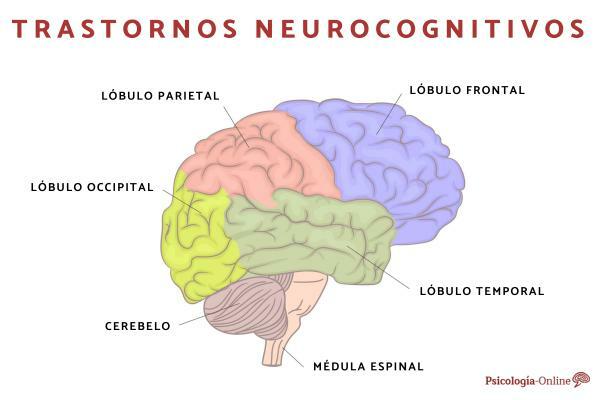
Thanatophobia is commonly known as the fear of death. More specifically, it can be a fear of death or a fear of dying process
The signs and symptoms of thanatophobia include anxiety, fear, and distress. Treatment focuses on learning to refocus fears and to talk about feelings and concerns. In this Psychology-Online article we tell you the causes, symptoms and treatment for thanatophobia or fear of dying.
Thanatophobia a is not officially recognized by the American Psychiatric Association (APA) as a disorder. Instead, the anxiety that someone may face due to this fear is often attributed to generalized anxiety.
The symptoms of thanatophobia may not be present at all times. In fact, signs and symptoms may only be noticed when you begin to think about your death or the death of a loved one.
The most common symptoms of fear of dying include:
- Panic attacks more frequent
- High levels of anxiety
- Dizziness
- Sweating
- Palpitations or irregular heartbeat from the heart
- Disgust
- Stomachache
- Sensitivity to hot or cold temperatures
When episodes of thanatophobia begin or get worse, you may also experience various emotional symptoms. These may include:
- Avoiding friends and family for long periods of time.
- Anger
- Grief
- Guilt
- Persistent concern

While thanatophobia is defined as a general fear of deathThere are many types and causes of this anxiety, and the details an individual focuses on can vary.
Phobias are often triggered by a specific event that took place in a person's past, although it is not always remembered what this was. Particular triggers for thanatophobia could include an early traumatic event related to the near death or death of a loved one.
A person who has a serious illness may experience thanatophobia because they have death anxiety, although they have poor health is not necessary for a person to experience this anxiety, but it is often related to distress psychological.
The experience of death anxiety can vary, depending on individual factors. These include:
- Age: A 2017 study suggests that older adults fear the dying process, while younger people more commonly fear death itself.
- Sex: According to a 2012 study, women were more likely than men to fear the death of their loved ones and the consequences of their death.
Doctors link anxiety around death with a variety of mental health conditions, including depressive disorders, post traumatic stress disorder and anxiety disorders.
Thanatophobia can be related to:
Specific phobias
Death anxiety is associated with a range of specific phobias. The most common objects of phobias are things that can cause harm or death, including snakes, spiders, airplanes, and heights.
Panic disorders
The fear of dying plays an important role in many anxiety disorders, such as panic disorders. During a panic attack, people may feel a loss of control and an intense fear of death or doom.
Hypochondria
Death anxiety may be related to illness anxiety disorders, formerly known as hypochondria. In this case, the person has an intense fear associated with getting sick and worries excessively about their health.

Treatment of anxiety and phobias such as thanatophobia focuses on alleviating the fear and worry associated with ceasing to exist. Some of the existing options are:
1. Talk therapy
Sharing what you are experiencing with a therapist can help you better deal with your feelings. Your therapist will also help you learn ways to deal with these feelings.
2. Cognitive behavioral therapy
This type of treatment focuses on creating practical solutions to problems. The goal is change thought pattern and put the mind at ease when faced with talking about death or death.
3. Relaxation techniques
Meditation, imagery, and breathing techniques can help reduce physical symptoms of anxiety when they occur. Over time, these techniques can help you reduce fears specific in general.
4. Medicines
Your doctor can prescribe medications to reduce anxiety and feelings of panic that are common in phobias. However, medications are rarely a long-term solution. They can be used for a short period of time while working in therapy to face fear.
This article is merely informative, in Psychology-Online we do not have the power to make a diagnosis or recommend a treatment. We invite you to go to a psychologist to treat your particular case.
If you want to read more articles similar to Thanatophobia or fear of dying: causes, symptoms and treatment, we recommend that you enter our category of Clinical psychology.


